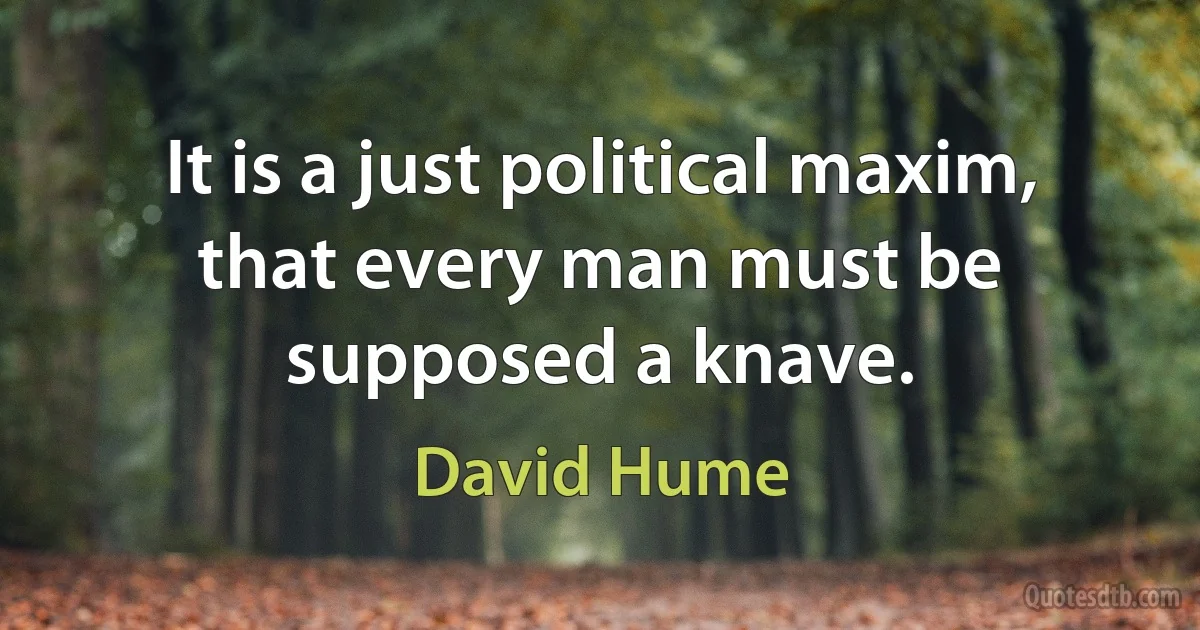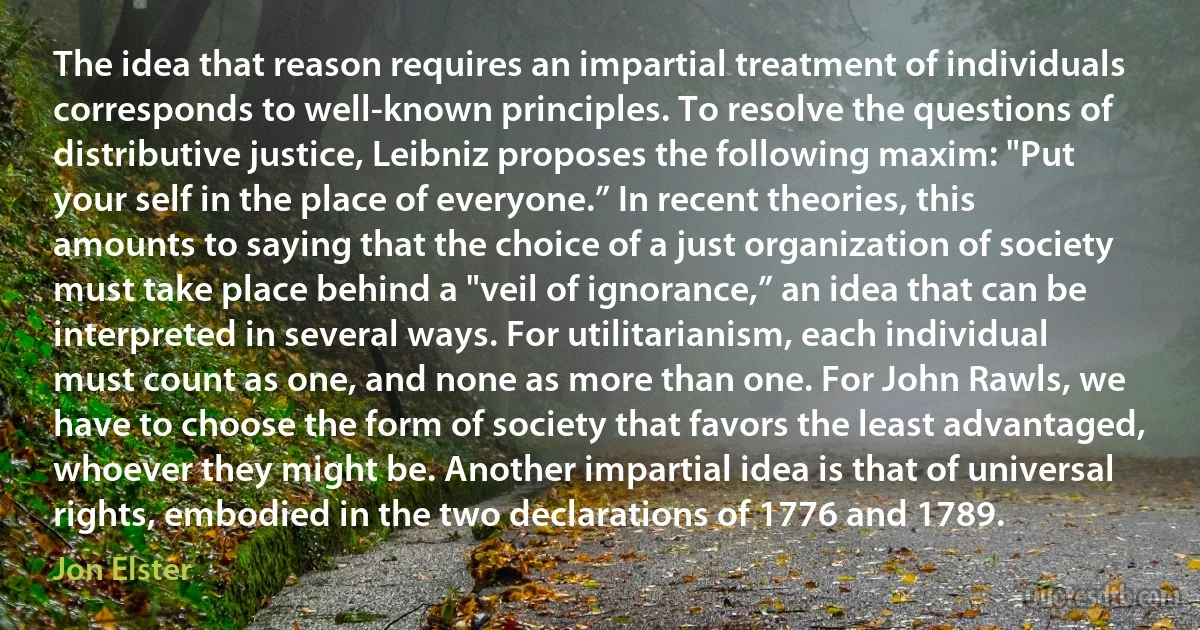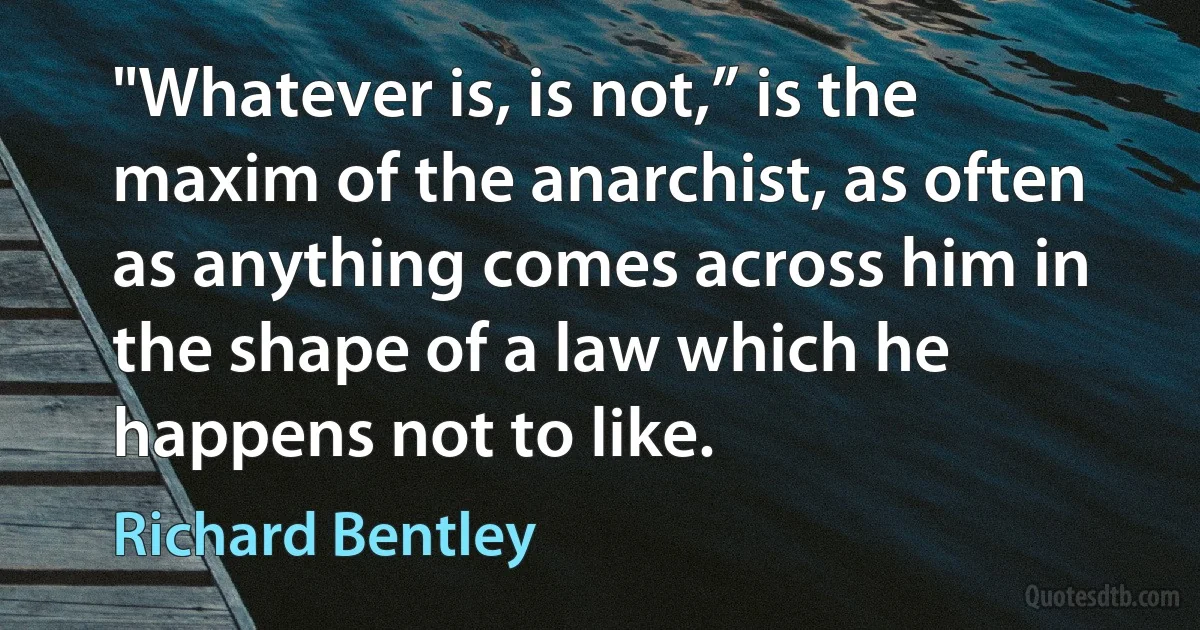Maxim Quotes - page 4
Ignorance is the mother of Devotion: A maxim that is proverbial, and confirmed by general experience. Look out for a people, entirely destitute of religion: If you find them at all, be assured, that they are but few degrees removed from brutes. What so pure as some of the morals, included in some theological system? What so corrupt as some of the practices, to which these systems give rise?

David Hume
No government, at that time, appeared in the world, nor is perhaps to be found in the records of any history, which subsisted without the mixture of some arbitrary authority, committed to some magistrate; and it might reasonably, beforehand, appear doubtful, whether human society could ever arrive at that state of perfection, as to support itself with no other control, than the general and rigid maxims of law and equity. But the parliament justly thought, that the King was too eminent a magistrate to be trusted with discretionary power, which he might so easily turn to the destruction of liberty. And in the event it has been found, that, though some inconveniencies arise from the maxim of adhering strictly to law, yet the advantages so much overbalance them, as should render the English forever grateful to the memory of their ancestors, who, after repeated contests, at last established that noble principle.

David Hume
A government will not pay people to contradict directly, or even only indirectly, what it has had promulgated from all the pulpits by thousands of its appointed priests or religious teachers. ... Hence the maxim improbant secus docentes [We reject and condemn the man who teaches something different].

Arthur Schopenhauer
Welcoming Hegel's idea of reconciliation as akin to his own enterprise of public reason, Rawls drew the line at his vision of the international realm as a domain of violence and anarchy, in which contention between sovereign states was bound to be regulated by war. Habermas's gesture enlisted Hegel, on the contrary, as a patron of cosmopolitan peace. The first could not square his Law of Peoples with the lawlessness of Hegel's states, the second could only enrol Hegel for pacific progress by turning him philosophically inside out. Bobbio, by contrast, could take the measure of Hegel's conception of world history, as a ruthless march of great powers in which successive might founds overarching right, and invoke it in all logic to justify his approval of American imperial violence. Law was born of force, and the maxim of the conqueror – prior in tempore, potior in jure.

Perry Anderson
The construction of hypotheses is a creative act of inspiration, intuition, invention; its essence is the vision of something new in familiar material. The process must be discussed in psychological, not logical, categories; studied in autobiographies and biographies, not treatises on scientific method; and promoted by maxim and example, not syllogism or theorem.

Milton Friedman
I am afraid the remark is too honest, and comes from the same origin as the maxim of the tyrant, "If you would rule the world quietly, you must keep it amused." I notice too, that the ground on which eminent public servants urge the claims of popular education is fear: "This country is filling up with thousands and millions of voters, and you must educate them to keep them from our throats."

Ralph Waldo Emerson
From the beginning of the year to the end, day and night, morning and evening, in action and repose, in speech and in silence, the warrior must keep death constantly before him and have ever in mind that the one death [which he has to give] should not be suffered in vain. In other words [he must have perfect control over his own death] just as if he were holding an intemperate steed in rein. Only he who truly keeps death in mind this way can understand what is meant by [Yamaga Soko's maxim of] "preparedness."

Yoshida Shoin
It was a maxim with Mr. Brass that the habit of paying compliments kept a man's tongue oiled without any expense; and that, as that useful member ought never to grow rusty or creak in turning on its hinges in the case of a practitioner of the law, in whom it should be always glib and easy, he lost few opportunities of improving himself by the utterance of handsome speeches and eulogistic expressions.

Charles Dickens
There is only one man who gets his own way-he who can get it single-handed; therefore freedom, not power, is the greatest good. That man is truly free who desires what he is able to perform, and does what he desires. This is my fundamental maxim. Apply it to childhood, and all the rules of education spring from it. Society has enfeebled man, not merely by robbing him of the right to his own strength, but still more by making his strength insufficient for his needs. This is why his desires increase in proportion to his weakness; and this is why the child is weaker than the man. If a man is strong and a child is weak it is not because the strength of the one is absolutely greater than the strength of the other, but because the one can naturally provide for himself and the other cannot. Thus the man will have more desires and the child more caprices, a word which means, I take it, desires which are not true needs, desires which can only be satisfied with the help of others.

Jean-Jacques Rousseau



